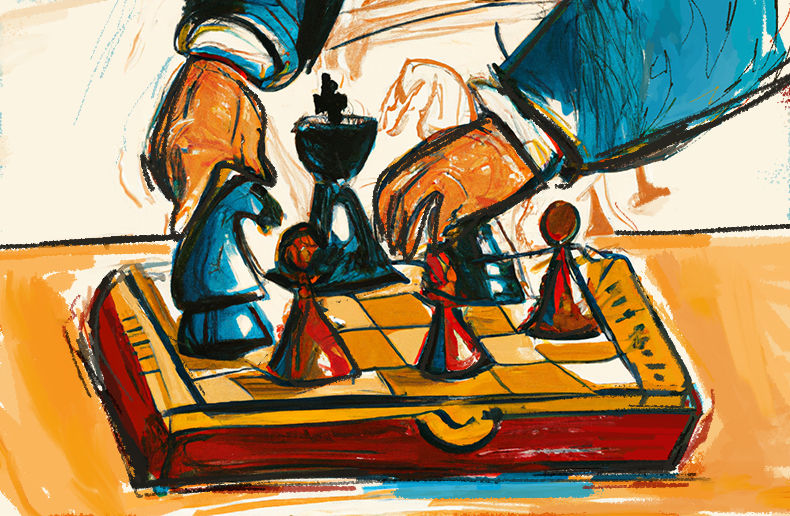
The tariffs decreed earlier this year by the US administration affect many sectors, including the property-casualty insurance industry. However, the P&C insurance industry says it is ready to face any eventuality.
This was the conclusion reached by four experts gathered on April 2 at the Palais des congrès de Montréal, as part of the closing panel of the Journée de l'assurance de dommages, a P&C industry conference organized by the Insurance Journal Publishing Group.
By triggering a surge in inflation, rates will certainly exert upward pressure on insurance costs, but also on the total bill for indemnities and claims," points out Jean-François Lussier, Senior Vice-President, Quebec, at Northbridge Insurance.
Inflation, and the uncertainty surrounding the current economic context, is also devaluing the Canadian dollar, making many products and services more expensive," adds Martin Boyer, Professor in the Finance Department at HEC Montréal.
The auto industry hit hard

During the pandemic, the auto industry was impacted by the tightening of borders and supply chain disruptions. Supply chains could “unravel tomorrow morning” as a result of tariffs and the reorganization they will entail for many manufacturers, observes Jean-“François Lussier.
“You'll recall that it was difficult to obtain certain auto parts, and there were delays," he recalls. All this has a fairly significant cost for consumers, and it could be reflected in insurance premiums."
Jocelyn Laflamme, Vice President Actuarial and Underwriting at Desjardins General Insurance Group, agrees.
“We can expect automobile insurance to be one of the lines of business most affected, given the industry's high level of integration [across the continent],” he says.
“On the other hand, we can also expect that consumers will have less money to buy new vehicles, and that this will lead to a decline in car insurance,” he adds.
However, Alain Fortin, Senior Vice-President, Quebec, Intact Insurance, believes that the industry is sufficiently resilient not to be affected too severely.
“We've carried out supply chain analyses, and we estimate a 12% impact on auto insurance claims costs and an 8% impact on overall claims costs," he says. For us, it's manageable, and we're looking at Canadian and more local solutions [to compensate]."
Lower premiums
Conversely, the hefty bill that accompanies customs tariffs could force some companies to renegotiate their insurance contracts, suggests Lussier. This pressure has been felt for several months now, he adds. “The first thing people are going to want to cut is their premium,” he says.
Insured companies may have to “choose between paying their employees or repairing the roof of the building,” adds Lussier an example. This could lead to a drop in preventive maintenance of infrastructures and an increase in claims following damage.
Lussier also fears that a tariff-induced recession could lead to an increase in insurance fraud, a phenomenon already observed.
“All this together could put downward pressure on rates and increase risk and claim payments,” he sums up.
The transport sector affected
While sparing no one, tariffs will hurt some industries more than others, with bus transportation leading the way.
“No one wants to travel to the U.S. anymore, and it's having a huge impact on charter bus companies: it's going to affect the renewal of our insurance programs,” predicts Lussier.
“It's a trend we've been seeing since January,” he adds, “and it will force the companies affected to review their offering. “They'll have to return to a Canadian interprovincial mode, which changes the whole dynamic of these companies, which are used to doing 80% of their business in the U.S.”
How to avoid the worst?

Insurers can implement measures to mitigate the effects of tariffs. “As an insurer, our job is also to look for solutions so that supply chains are less impacted,” underlines Alain Fortin.
“Brokers can also shop around for additional protection for [their customers], companies that might be nervous," he adds. “There's credit insurance: there's an opportunity there to try and protect what's been acquired."
The banking sector is not to be outdone, notes Jocelyn Laflamme. "We have a preventive role to play. In our case, Desjardins' corporate banking sector has already proactively contacted 40,000 entrepreneur members to give them strategic advice, help them diversify their customer base and also present them with financial solutions."







